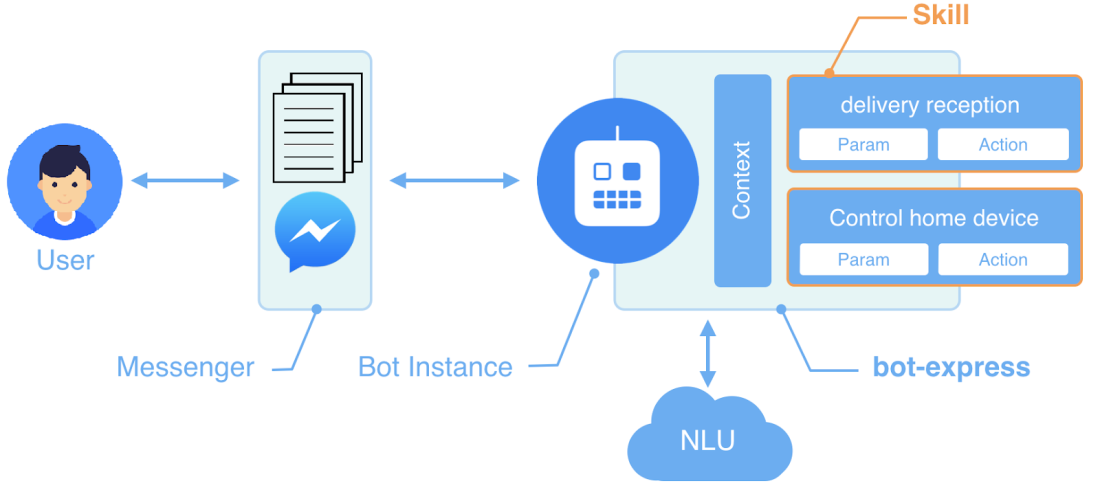
WHY CHATBOTS ARE THE SAVIOURS OF CONVERSATIONAL MARKETING FOR SMALL BUSINESSES
AI-powered chatbots are predicted to greatly enhance customer service and customer engagement in the near future of marketing, due to the power of conversational marketing. According to a survey by Oracle, 80% of businesses want a chatbot in place by 2020. And on top of it all, unlike other inventions, this new technology is extremely friendly to small and medium businesses. Read through this article to find out more about chatbots!
First and foremost, conversational marketing is a new but well-received personalized approach to achieving optimal conversion rate. Although the conversation is automated through AI technology or messaging systems, it surprisingly moves buyers through marketing and sales funnels by using the power of one at a time questions, a lot like a real-time conversation.
Chatbots are AI-powered software programs designed to use natural language and pre-programmed responses to have a conversation. After an initial question, the chatbots form responses through keywords in the customer’s messages or options that they have picked using conditional logic. In other words, it’s an automated conversation with your website or eCommerce platform visitors.
Through solving specific but frequently asked customer questions at an impressive capacity, nowadays chatbots are growing immensely in popularity as a respectable marketing solution. In the 21st century world of internet marketing, the use of chatbots is actually more common than you might think. As early as 2016, Facebook Messenger added a chatbot as a plug-in for businesses to automatize conversations with clients. This chatbot converses with some of the 1.3 billion people who use Facebook Messenger every month. As of the 2018 F8 conference, Facebook has 300,000 active Messenger bots. That’s three times as many as the year prior

If you’re a small-business owner interested in streamlining marketing or customer service, then using a chatbot is something that’s worth taking a closer look at. Getting into the nitty-gritty, typically, for businesses at least, they are used for functions such as customer service, generating new leads, and making the sales process easier. But what are the pros and cons of using chatbots?
Pros of using chatbots:
- Budget-friendly: basic chatbots can be set up quickly and easily with a modest budget, and they can replace the number of employees needed to respond to customer queries.
- Faster customer service and Helps manage customer requests: There’s no limit to how many customers a chatbot can handle, which allows your service team to manage the more complex requests, leaving the frequently asked questions to your marketing helpers.
- Constantly available: Unlike human employees who have rest days and weekends (which you should definitely be taking!) chatbots can work around the clock, around the year. Therefore, your customers can be taken care of at any time.
- Promotes conversational marketing: As mentioned above, most consumers prefer to receive an answer to their question immediately. Rather than having to scroll through your website and find the answer themselves, or fill out a contact form to receive a call or email at a later date, a chatbot allows customers to engage with your site without requiring an actual human to monitor the conversations.
Cons of using chatbots:
- Lost of a human touch: In a survey conducted by Statista, only 34% of respondents stated they would be comfortable using chatbots in an online retail situation. Chatbots lack the sophistication and empathy of a real-life human. As they don’t understand natural language, this can result in a higher capacity for misunderstanding.
- Need to be maintained: Like all current technologies, chatbots need to be regularly maintained and optimised to fit the changes in the company’s strategies or product releases. This process can mean more expert work than simply briefing the changes to a human being.
- Losing customer insights: As all customer interactions are moved to an online conversation with a robot without any monitoring, valuable customer insights might get lost in the process.
- Bots don’t fit every business model: While there can be many uses for a chatbot, the truth is that not every business model can use a chatbot. Transactions involving more expensive or meaningful products, such as houses or cars, might need a specialised employee to accompany the customer throughout their purchase decision.
Nevertheless, if your small business is ready to embrace this new marketing technology, a basic customer service chatbot would be a good starting point. Not only will it help you with the menial tasks that you simply do not have enough time for, you will have more time to take care of the more sophisticated tasks that require customer insights, hence eliminating all the cons associated with chatbots above. Developing a standard “question, reply, question, reply” chatbot uploaded with the most common and specific customer questions is cheap and easy. Ultimately, this can help simplify sales, influence decisions and streamline payments. From there, the opportunities are literally endless when it comes to the new breed of bots for small businesses!

No Comments
Sorry, the comment form is closed at this time.